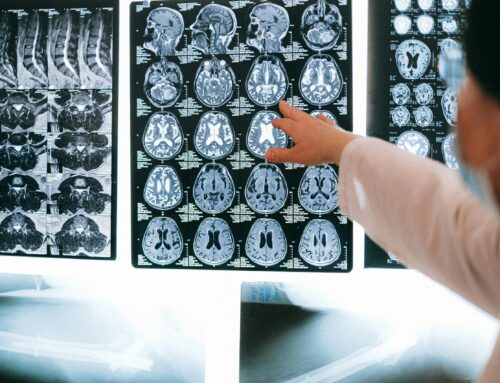As a parent, receiving a recommendation for your child to undergo a neurobehavioral evaluation can bring up a whirlwind of emotions, from relief at finally getting answers to anxiety about the unknown. Whether you’re exploring potential diagnoses like ADHD, autism spectrum disorder, anxiety, or other neurodevelopmental conditions, proper preparation can make all the difference in ensuring an accurate assessment and a positive experience for your child.
What Does a Neurobehavioral Evaluation Involve?
A neurobehavioral evaluation is a comprehensive assessment that examines how your child’s brain function affects their behavior, learning, and social interactions. Unlike a standard medical exam, these evaluations typically span several hours and may occur over multiple sessions. The process involves standardized tests, questionnaires, observations, and interviews to create a complete picture of your child’s strengths and challenges.
These evaluations assess cognitive abilities, academic skills, attention and executive functioning, social-emotional development, and adaptive behavior skills. The approach ensures that all aspects of your child’s functioning are considered before reaching diagnostic conclusions.
Age-Appropriate Preparation Strategies
For Younger Children (Ages 3-7)
Younger children benefit from simple, concrete explanations about what to expect. Frame the evaluation as a chance to “play games” and “do puzzles” with a doctor or specialist. Avoid using scary medical language or suggesting that anything is “wrong” with them. Instead, emphasize that the specialist wants to learn about how their brain works best so they can help them succeed.
Create a visual schedule or social story about the evaluation day. Practice sitting at a table and focusing on activities for gradually increasing periods. Many evaluation centers provide virtual tours, so take advantage of these resources to familiarize your child with the environment!
For School-Age Children (Ages 8-12)
School-age children can understand more detailed explanations about the purpose of the evaluation. Explain that just like some people need glasses to see better, some brains work differently and might benefit from extra support or different strategies. Emphasize that this is about discovering their unique strengths and finding the best ways to help them learn and grow.
Be honest about the time commitment and let them know it might take a few hours and involve different types of activities. Reassure them that there are no “wrong” answers and that taking breaks is perfectly normal. If your child has specific concerns or questions, write them down and bring them to discuss with the evaluator.
For Adolescents (Ages 13+)
Teenagers should be full partners in understanding the evaluation process. Discuss the potential benefits of assessment, such as accessing accommodations at school, better understanding their learning style, or getting appropriate support services. Be transparent about your observations and concerns while validating their own experiences and feelings.
Many teens worry about being labeled or stigmatized. Address these concerns directly by discussing how neurodiversity is increasingly understood as natural variation in human brain function rather than a deficit. Share stories of successful individuals who have similar neurological profiles when appropriate.
Gathering Important Information
Before the evaluation, compile comprehensive information about your child’s developmental history, medical records, and school reports. Create a timeline of developmental milestones, noting any delays or concerns. Include information about the family history of neurological or learning differences.
Document specific behaviors, challenges, and strengths you’ve observed across different settings. Video recordings of concerning behaviors can be helpful, as children often behave differently in clinical settings than at home.
Physical Preparation
Ensure your child gets adequate sleep the night before the evaluation, as fatigue can significantly impact performance and behavior. Plan a nutritious breakfast and pack healthy snacks for longer assessments. If your child takes medication, discuss timing with both your prescribing physician and the evaluator, as some assessments may require seeing your child both on and off medication.
Consider the timing of the evaluation carefully. Schedule assessments during your child’s optimal performance times when possible, typically mid-morning for most children. Avoid scheduling around disruptive events like school holidays, family stress, or major transitions.
Emotional Preparation
Acknowledge that feeling nervous is completely normal and validate your child’s emotions about the assessment. Practice relaxation techniques like deep breathing or progressive muscle relaxation that your child can use if they feel anxious during testing. Create positive associations by planning a special activity or treat for after the evaluation, regardless of the outcome.
What to Expect During the Assessment
Most comprehensive neurobehavioral evaluations include cognitive testing, academic achievement assessments, attention measures, and behavioral observations. Your child might work with psychologists, speech-language pathologists, or occupational therapists.
The testing environment is typically child-friendly and non-threatening. Evaluators are trained to work with children and will adjust their approach based on your child’s age and comfort level. Breaks are built into the schedule, and most centers have waiting areas where parents can remain nearby.
Supporting Your Child Throughout the Process
During the evaluation, follow the professional’s lead regarding your involvement. Some assessments require parent input, while others need to be conducted without parent presence to ensure accurate results. Trust that the evaluator will communicate with you if any issues arise.
Stay calm and positive, as children pick up on parental anxiety. Remember that this evaluation is a tool to better understand and support your child, regardless of the outcome. You’re taking an important step toward helping them reach their full potential!
Common Concerns and How to Address Them
Many parents worry about how their child will react to testing or whether the results will be accurate. It’s normal for children to feel tired or overwhelmed during lengthy assessments, and evaluators are trained to recognize when genuine fatigue versus avoidance behaviors are occurring. Most assessment tools have built-in validity measures to ensure results accurately reflect your child’s abilities.
After the Evaluation
Once testing is complete, you’ll typically wait several weeks for comprehensive results. The evaluation team needs time to score assessments, analyze patterns, and prepare detailed recommendations. Use this waiting period productively by researching potential interventions and connecting with parent support groups.
When results are ready, you’ll meet with the evaluator to review findings in detail. Come prepared with questions about recommended next steps, educational accommodations, and treatment options. Don’t hesitate to ask for clarification about technical terms or specific recommendations, as this information will guide important decisions about your child’s support needs!
Conclusion
Preparing your child for a neurobehavioral evaluation with NeuroBehavioral Associates requires thoughtful planning, age-appropriate communication, and emotional support. By taking these steps to prepare both practically and emotionally, you’re setting the stage for a successful assessment that provides valuable insights into your child’s strengths and needs. Remember that seeking this evaluation demonstrates your commitment to understanding and supporting your child’s unique way of experiencing the world.
The goal of a neurobehavioral evaluation is to better understand how their brain works so you can provide the most effective support, accommodations, and interventions. With proper preparation and a positive mindset, this evaluation can be an empowering step toward helping your child reach their full potential. Contact NeuroBehavioral Associates today to get started, we can’t wait to meet you!






